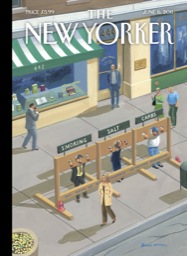The Reporting Award
Launched in 2010, The Reporting Award award provides up to $12,500 for a significant work of journalism, in any medium, on an under-reported subject in the public interest. In establishing the award, the Arthur L. Carter Journalism Institute’s faculty cited the need for encouraging enterprising journalism during a time of extensive layoffs and budget cuts throughout the journalism industry.
The American Society of News Editors has reported the loss of 16,200 full-time newspaper editorial jobs from 2003 to 2012, while Ad Age reports the loss of 38,000 magazine positions. These numbers are only partially offset by the growth of about 5,000 jobs at digital news organizations, as reported by the Pew Research Center.
“The severe reduction in resources has a negative impact on all kinds of reporting, but especially investigative because of the high cost of doing it well,” said Stephen D. Solomon, Marjorie Deane Professor of Journalism. “The support provided by the Reporting Award and other nontraditional sources can help fill in some of the gaps.”
Over the last ten years, Reporting Award winners have covered Haitian earthquake victims; a shelter for homeless pregnant women; and membership disputes within Native American tribes.
Sarah Stillman, the Award’s first recipient in 2010, returned to Iraq and made her first trip to Afghanistan to pursue an investigative reporting project on the plight of foreign workers on U.S. military bases in both countries. Her resulting piece, “The Invisible Army,” appeared at a feature in the June 6, 2011 issue of The New Yorker. Ms. Stillman received a National Magazine Award for her article.
Here’s what Sarah has to say about winning the award:

Staying afloat as an investigative journalist can be hard, but that’s all the more true when you’re interested in reporting deep-dive, resource-intensive stories in the public interest — the sorts of pieces that can take months of traveling, interviewing, cajoling, and document-digging to report, and then to write. Editors are often wary to take a risk on these kinds of stories, particularly when it comes to writers they’ve never worked with before; as a result, the Reporting Award was a godsend for me, at a moment in my career where I had the idea for a story I cared about but not the funds to see it through. It allowed me to venture to Iraq and Afghanistan; to burrow into a story that took time and persistence to report (uncovering human trafficking and labor abuses on U.S. military bases); and to get the resulting feature published in The New Yorker. Without the funding provided by the Reporting Award, the story wouldn’t have been possible. But equally important was the community that NYU’s Carter Journalism Institute provided: the brilliant colleagues with whom to brainstorm and troubleshoot, the room of my own in which to write, and the sense of belonging that helped to buoy work that can otherwise be lonely and isolating. The Award changed my career, and my sense of what’s possible when a journalistic institution throws its weight behind reporting projects in the public interest — from Jina Moore’s vulture fund exposé to Seth Freed Wessler’s child-welfare coverage.”
– Sarah Stillman, 2010 Winner
The Reporting Award will be on hiatus for one year. We expect applications to open next year in January 2026.